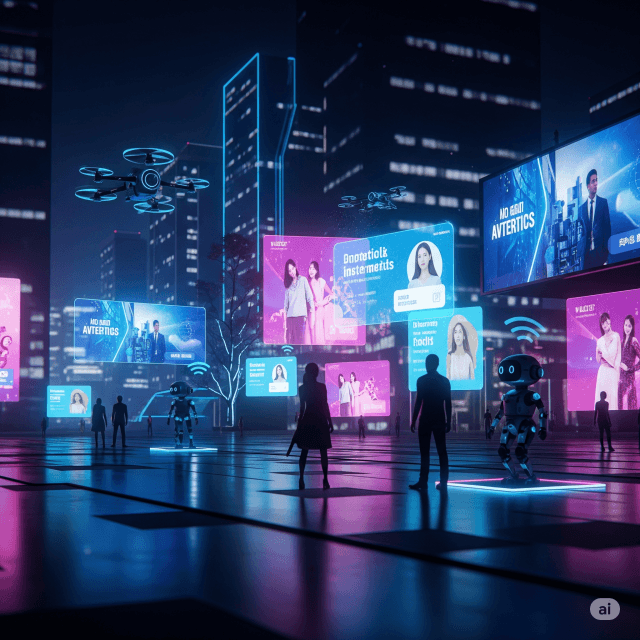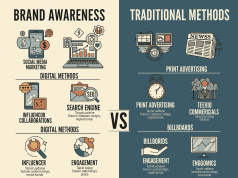In the rapidly evolving landscape of advertising, artificial intelligence (AI) is not just a buzzword; it’s a transformative force that is reshaping how brands engage with consumers. From personalized content to predictive analytics, AI is revolutionizing marketing in unprecedented ways. Let’s explore the various facets of this intricate relationship and how businesses can harness the power of AI to stay ahead.
1. Personalized Marketing at Scale
One of the most significant advancements brought about by AI in advertising technology is the ability to create hyper-personalized experiences for consumers. Traditional marketing relied heavily on demographic data to segment audiences, but AI takes it a step further by analyzing behavioral data, interests, and preferences.
Example: Algorithms can now predict what products a user is likely to purchase based on their previous interactions. This information allows brands to tailor their messages, making them more relevant and engaging. For instance, e-commerce platforms can recommend products to users in real-time, enhancing their shopping experience while boosting sales.
2. Enhanced Data Analytics
The use of AI in data analytics has redefined marketing strategies. Machine learning algorithms can process vast amounts of data at remarkable speeds, extracting valuable insights that were previously unattainable.
Predictive Analytics: Marketers can now forecast trends, customer behaviors, and buying patterns. This predictive capability enables brands to allocate budgets and resources more efficiently, ultimately leading to higher return on investment (ROI).
Sentiment Analysis: AI-powered tools can analyze customer feedback from social media and online reviews to gauge public sentiment about a brand or product. This information helps businesses react swiftly to both positive and negative feedback, maintaining a strong brand reputation.
3. Automation and Efficiency
AI-driven automation tools are streamlining various elements of the marketing process, saving time and reducing labor costs. Programmatic advertising, for example, utilizes AI to purchase ad space in real-time, ensuring that ads are displayed to the most relevant audiences.
Efficiency in Campaign Management: Campaign optimization is another area where AI shines. Automated systems continually analyze performance metrics, optimizing ads in real time to ensure maximum effectiveness. This level of efficiency previously required extensive human intervention but can now be accomplished through AI.
4. Creative Content Generation
AI is also pushing the boundaries of creative content generation. Tools powered by natural language processing and machine learning can now create compelling copy, suggest designs, and even compose music.
Content Personalization: AI can help in tailoring messages to customers based on their preferences and buying behavior, thus driving engagement. For instance, email marketing platforms can send personalized email content that resonates with individual users, increasing open and conversion rates.
5. Better Customer Experiences
With AI, brands can offer enhanced customer support through chatbots and virtual assistants. These AI-driven systems can engage customers 24/7, providing immediate responses to queries and issues, thereby improving the overall customer experience.
Predictive Customer Service: AI can anticipate customer questions and concerns based on historical data, allowing brands to proactively address issues before they escalate. This predictive approach not only enhances service but also fosters loyalty.
6. Ethical Considerations
While AI offers numerous benefits, it also raises ethical concerns, particularly around data privacy. Marketers must navigate issues related to consent and transparency when collecting and utilizing consumer data. Striking a balance between personalization and privacy is essential to maintain consumer trust.
Conclusion
As the digital landscape continues to evolve, the impact of AI on advertising technology is likely to deepen. Businesses that embrace AI-driven marketing strategies will not only improve their operational efficiency but also deliver personalized, engaging experiences to consumers.
The future of marketing is undoubtedly intertwined with artificial intelligence, offering tremendous opportunities for brands to connect with their audiences in ways that were once thought impossible. By leveraging the capabilities of AI responsibly, companies can revolutionize their marketing efforts, driving engagement and enhancing customer satisfaction in an increasingly competitive marketplace.









